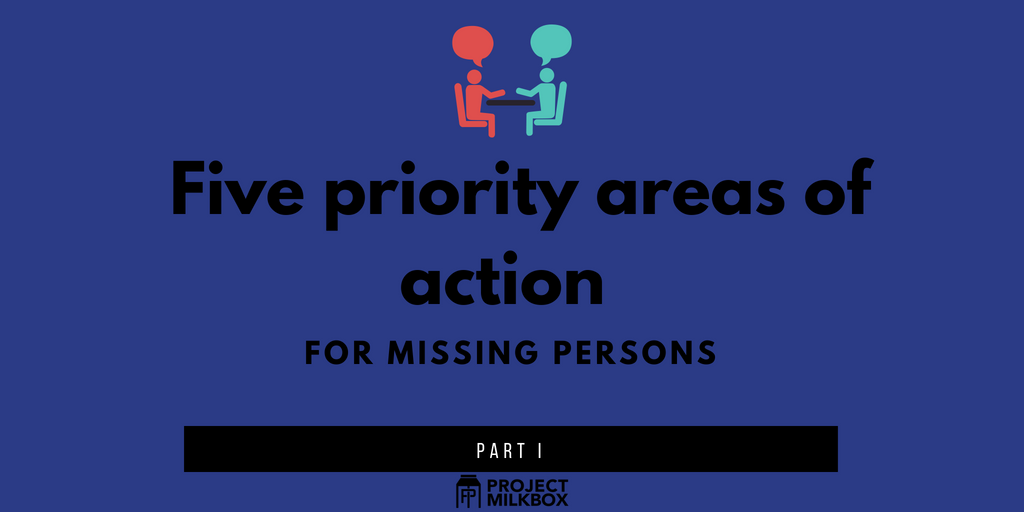📑 Five priority areas of action for missing persons (Part I) - Project Milkbox 🥛
In order to respond to the problems linked to the disappearance of persons, a group of remarkable people identified five areas of action at the International Conference of governmental and non-governmental organizations on missing persons, held in Geneva from February 19 to 21 of 2003, by the invitation of the International Committee of the Red Cross. These five areas have been taken up by other international instances
I. Prevent disappearances
If taken on time, the following measures can prevent disappearances:
The identification of members of the armed forces and organized armed groups is an essential means of preventing disappearances. A correct identification is essential in order to find people who have disappeared as part of a situation of armed conflict or internal disturbances. All armed forces must provide their members with means of identification, in particular personal files, badges and identity cards, which are useful for determining the status of persons who fall into the power of the adversary, as well as the identity of those who have result dead or seriously injured. Identity plates are recognized as the only means of simple, safe and durable identification. Therefore, it is the minimum that must be given to all members of the armed forces and organized armed groups.
The data registration of specific groups of vulnerable people and of people exposed to particular risks, respecting the rules of protection of personal data, is also a means of preventing disappearances. The systematic recording of data of groups of civilians, who run the risk of losing contact with their relatives in a situation of conflict or internal violence, such as persons deprived of their liberty, young children, the elderly or disabled , displaced persons or refugees, can help people to find a loved one and thus avoid the disappearance.
In addition, persons deprived of their liberty in a situation of armed conflict or internal disturbances are sometimes withheld in a secret location or are kept without communication. All these forms of detention are prohibited. The proper registration of the data of persons deprived of liberty - date and place of arrest, place of detention or imprisonment, transfer, death or burial - carried out in strict accordance with the provisions of the law by the competent authorities or persons authorized for this purpose, it is the condition to guarantee the safety and physical integrity of the group at risk and, therefore, prevent disappearances. Those who break these rules must answer for their actions. The necessary measures, including orders and instructions, should be taken to make it possible to verify the reality of the releases of persons deprived of their liberty and so that no prisoners of war will be repatriated against their will. In addition, the competent authorities should notify any release to the spouse, a close relative or any other person designated for that purpose. In all circumstances, persons deprived of their liberty must be authorized to inform their families of their arrest or capture, their address and their state of health.
- Respect for the right to exchange news is another fundamental mean to prevent the disappearance of people. That right must be reaffirmed as a fundamental and priority right; the State authorities must be reminded of their obligations in this regard. The violation of the right to exchange news with family members is a violation of the right to family life and may constitute cruel, inhuman or degrading treatment. The family news network of the Red Cross and Red Crescent is essential and should receive the support of all concerned, as a priority.
Source: https://www.icrc.org/eng/assets/files/other/icrc_002_1117.pdf
Funds for this posts will be used to support different Red Cross initiaves and missing persons organizations.
.png)


To listen to the audio version of this article click on the play image.

Brought to you by @tts. If you find it useful please consider upvote this reply.